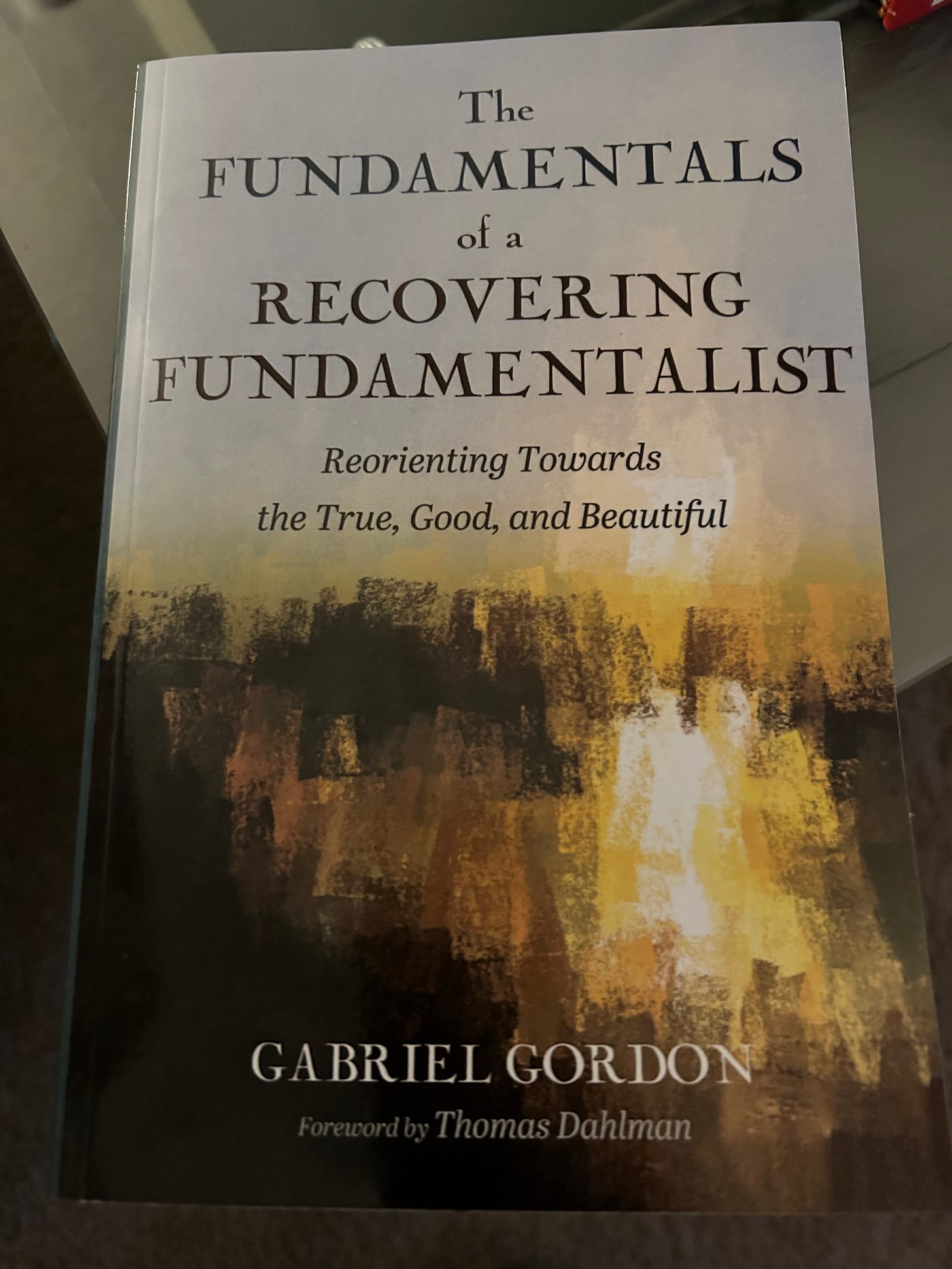The Fundamentals of a Recovering Fundamentalist
A Book Review
Gabriel Gordon has given us an interesting book approaching the crisis of fundamentalism in the West. Gordon identifies the fact that fundamentalism can show itself across ideologies. Gordon’s most important judgement is that modern Western Progressive Christianity and Fundamentalist Christianity are not very far from one another. He believes that the two are connected by a way of considering specific interpretations and often rejecting tradition.
Gordon uses an entertaining and accessible mix of personal anecdote and historical scholarship to call the Church back to her Jewish and Eastern roots. I appreciate Gordon’s charitable approach to all with whom he is in dialogue. His careful and loving discussion of fundamentalism within its own context is a fresh approach, as is his same approach to liberal theology. Gordon rightly shows that fundamentalism and classic liberalism are both informed by enlightenment’s sensibilities. His solution is to call us back to the earliest days of Christianity and to recover our Jewish and Near Eastern roots. I applaud his aim and wonder if the modern Western church has gone too far down our path to even recognize our ancient heritage.
I agree with Gordon that modern Western Christianity has been shaped mostly by white European concerns beginning prior to the Reformation. We have accepted so many ideas as Christian that are actually Christianized ideologies about the nature of human beings and our connection to our planet. This is a challenging thesis and one which may trip up readers who assume that our current context is more rooted in ancient Christianity than it actually is. But the challenge is worth it. Gordon’s approach is gentle and will not leave you angry for long; although any discomfort may linger.
Gordon’s charitable approach of prose and storytelling provides a fresh approach in an environment where “owning” those who disagree with us is considered normal. An excellent example of the type of discourse that Gordon models for us is his recommendation of Tom Oord’s works on essential kenosis. Gordon explains he recommends Dr. Oord’s works on essential kenosis even as he (Gordon) disagrees with open theism. This simple direction in Gordon’s recommended further reading is a fresh approach to the understanding that we can disagree on one point while agreeing on a larger point. Gordon describes himself as a Jewish Anglo-Orthodox Episcopal follower of Yeshua and that description fits his approach well.
I highly recommend this volume that calls us to a more beautiful story of Christian thought. It may challenge you, but that challenge is worth it.
https://wipfandstock.com/9781666785685/the-fundamentals-of-a-recovering-fundamentalist/



